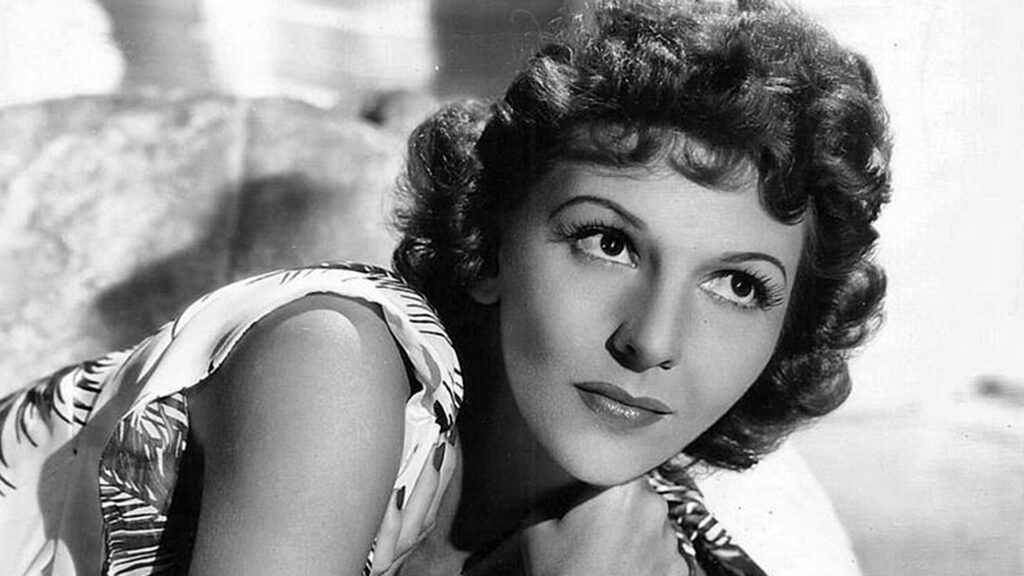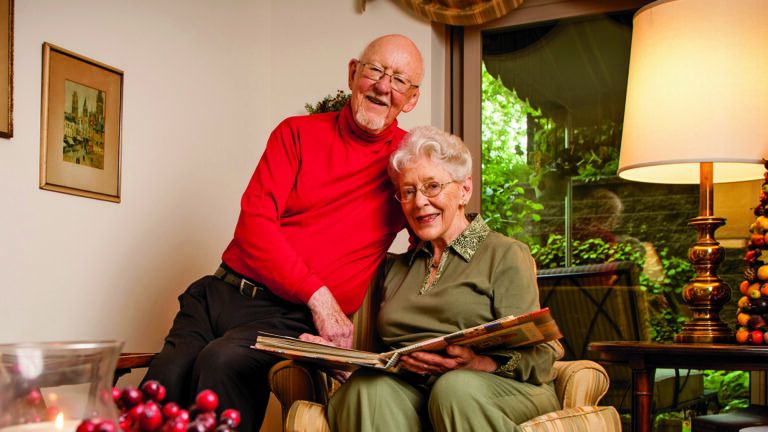When I was very young I remember going by a large estate, hidden by trees, and being told that the road behind the huge iron gates led to a mysterious building called The Retreat, where nuns lived in solitude.
Alone? I wondered. Away from everyone and everything? How terrible!
Many years later my husband, Richard Halliday, and I were having dinner in a restaurant when a friend stopped to talk to us. “I heard you spent two months on a freighter,” he said, “just the two of you as the only passengers. And now I hear you’ve bought a farm where you can retreat whenever you need to. I guess you two really value your solitude.”
I forget what I answered. Before my eyes was a picture of dark trees and high iron railings and the road that led to that mysterious building. For he had used those words, “solitude” and “retreat”—words that for me still evoked the gloom and terror of that childhood scene.
Not once had I applied them to what Richard and I did. Days gazing out over the endless sea, not another passenger aboard; the farm where the phone never rang because there was none to ring—were these in some sense “retreats”? Was it to be alone that we chose them?
We have traveled on many freighters and spent much time on that isolated farm. I know now that these are indeed retreats, and that solitude is their essence. And I have discovered that the real thing is utterly different from what I imagined, peering through that iron fence.
To my child’s mind, solitude meant loneliness—that fearful state of lovelessness and separation—and retreat meant to run away. But solitude, I know now, is the very opposite, not a loss of love, but a deliberate embrace of silence and uncluttered living in order to become more capable of love.
Nor have we ever run away from anything—or anyone. Rather, we have instinctively run to a change in the rhythm of life: to refuel, to gather fresh air and sun, to rest the mind and body, to feel the blood surge as a small ship creaks and groans through plunging waves; or to hear the wind whistling from a mountaintop climbed on foot.
At the farm, up at sunrise, to bed soon after 9 p.m. To know the joy of being hungry and taking the time to savor each bite of freshly picked fruit and vegetable. To rest, to read, to listen to the music of the night. And suddenly the mind is alive with new ideas, new thoughts, new hopes, new knowledge of ourselves and where we fit into the world of other people.
Such solitude, like all things of value, has its price. If I am to be alone, I must do without many of the conveniences of life—because they depend on other people.
When the sleek and ultra-automatic refrigerator in our New York apartment breaks down (as it has three times in the past 14 months), I phone the serviceman, who finally comes and tells me the job needs a specialist—who finally comes and tells me I must order a part from the factory. And I spend my time phoning and writing letters and waiting for the experts and the part that never comes. Interdependence is the condition of technology.
But the old white icebox on our farm, like the lamps there, runs on kerosine and an old-fashioned wick. When it stops making ice, I turn it upside down to get rid of the air pocket—like burping a baby—and then it makes ice again. It doesn’t deposit symmetrical cubes into a pretty container, but it does let me breathe the air of privacy.
Five years ago Richard and I decided that instead of waiting until we were at the conventional retirement age of 65, we would live that 65th year now—and live it alone, on our farm. We made many discoveries, that year of preview-retirement, but the chief one was that there wasn’t one dull, boring moment. The 52 weeks sped by like four.
We both spent more hours “together” and more hours “apart” than we had ever thought possible. We knew a stillness, a quietness; we had lived with ourselves and had no fears. We felt more eager to plunge into our next undertaking than ever before. We had learned the strengths that come naturally from those moments of solitude which nature needs from us all. We had not been alone, nor known loneliness.
Nature leads the bear to hibernate. But we human beings, especially we women, have to work to learn what riches we can gain in only a few moments of drawing aside—because, of course, solitude does not have to be taken in great hunks of a year, or even a week. These are the “big solitudes” in response to big weariness and confusion.
But the frictions and frustrations of every day need healing too, and for those there are “small solitudes.” Just a door to shut for ten minutes between ourselves and the demands upon us, giving time for prayer and contemplation. A walk in the park. The time to hear a favorite record all the way through, with the window shades down and the phone off the hook.
All those can be retreats-in-miniature, part of the ancient wisdom of life’s ebb and flow.
For like the land, we have to lie fallow from time to time—whether short or long; like the land, we must renew our strength in emptiness. For the human spirit this means solitude in order to soar again.
I learned that truth in an unforgettable manner not long ago. After doing The Sound of Music, I was part of a group preparing a show called Jenny. The author said he was writing a serious play. The composer and lyricists insisted they were writing a light, entertaining score.
It was my conceit at the time that I could bring their opposing purposes together to make a successful whole. What followed was my most torturous and frightening experience.
When we opened in Boston, the critics and audiences were disappointed. New material had to be written; cast changes made, requiring rehearsals before and after performances. My body grew weary, my vocal cords strained. I needed a doctor daily and soon required a throat specialist.
Our next stop in Detroit was equally disappointing, and with a second attempt at new material and additional rehearsals, I was near exhaustion. After six weeks we announced we would close the show and not bring it to New York.
A few hours later we were told we would be sued for $2 million if I did not open with the show in New York. I had 48 hours to decide whether to continue to perform and ask the audiences to share my disappointment or go to court and be forced to work the rest of my life to pay out an enormous sum of money.
I decided that I would not spend the future in lawyers’ offices and courts. I would not work to pay all my earnings to men with whom I was in total disagreement.
We opened in New York, and the critics and audiences liked the show no more than they did in Boston and Detroit. I doubted at the time that I would ever want, or be able, to appear on the stage again.
Richard and I retreated to our farm. I saw the sunny days through a haze. I slept 10, 12, even 13 hours a night. I was not thinking of the past or the future. I was very much living in the present. I discovered I could still be pleased with the rolls and bread I baked. I got out the ancient treadle sewing machine and made a flower-print dress. Another day I found my oil paints and started painting again.
Gradually I became aware of the world about me. A baby on the farm next to ours died, and the distraught father asked our help to arrange the burial. Two babies were born to couples living on our land. They had no milk for them. I found myself on horseback riding over the mountains as Richard and I went to buy milk cows.
And all at once I knew that I was anxious to get back to work. I was still not sure that I would ever sing again. For the first time in my life I had heard no music for three months. I had not whistled or hummed or sung a note. I think I was frightened to hear the sound that would come out of my abused voice. What was more terrifying was that I felt no music within me. I could not even recall the joy of singing.
But I was scheduled to make recordings with a group of gifted child singers soon after we returned to New York. For the first time in my life, I went to the studio without working on the music. I was strangely calm. The children were gay and beautiful to look at. The moment came for us to blend our voices together.
There was a silence in the studio. The music began. The children’s voices rose.
And to my joy I felt that glorious life-giving force from within and I sang.
Like the fallow earth, my voice had rested, and I sang clearly and fervently. Like the fallow earth, the spirit within me soared.
I understand better now that building called The Retreat, hidden behind its forest. It is in solitude that we hear the voice of God.
For more inspiring stories, subscribe to Guideposts magazine.






